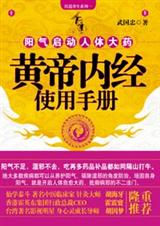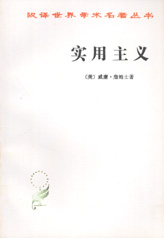牛津实用英语语法-第2部分
按键盘上方向键 ← 或 → 可快速上下翻页,按键盘上的 Enter 键可回到本书目录页,按键盘上方向键 ↑ 可回到本页顶部!
————未阅读完?加入书签已便下次继续阅读!
He little expected to find himself in prison.
他几乎没有料到自己会进监狱。
He little thought that one day…
他几乎从不曾想过有一天……
注意像little-known和little-used这样的形容词的用法:
a little-known painter一个藉藉无名画家
a little…used footpath一条几乎没有人走的小道
?
'Amber demo'
6 the(定冠词)
?
A 形式
英语的定冠词the没有单、复数和性的变化:
the boy这/那个男孩
the boys这/那些男孩
the girl这/那个女孩
the girls这/那些女孩
the day这/那一天
the days这/那些天
B 用法
定冠词的用法如下:
1 名词所表示的物体是唯一的或被认为是唯一的时,前面用the:
the earth地球
the sea大海
the sky天空
the equator赤道
the stars星辰
2 名词所表示的事物由于第二次提到而成为特指的事物时,前面要用the:
His car struck a tree;you can still see the mark on the tree.
他的车撞了一棵树,你还能看到那棵树被撞的痕迹。
3 名词所表示的人物由短语或从句修饰而成为特指的人物时,前面用the:
the girl in blue穿蓝衣服的女孩
the man with the banner举旗的那个男人
the boy that I met我遇见的那个男孩
the place where I met him我遇见他的地方
4 名词所表示的事物因所处位置而只能是某一特指的事物时,前面用the:
Ann is in the garden.
安在花园里。(可指这所房子的花园)
Please pass the wine.
请把酒递给我。(可指餐桌上的酒)
5 形容词或副词的最高级以及first,second等词用为形容词或代词时,前面要用the;only用为形容词时前面也要用the:
the first(week)第一(周)
the best day最好的一天
the only way唯一的办法
C the+单数名词可以代表一类动物或事物:
The whale is in danger of being extinct.
鲸类有灭绝的危险。
The deep…freeze has made life easier for housewives.
有了冷冻柜,家庭主妇的日子好过多了。
但man用来表示全人类时,前面不用任何冠词:
If oil supplies run out,man may have to fall back on the horse.
如果石油资源枯竭,人类可能又得靠骑马了。
定冠词the可以用在代表某一群体的单数名词之前:
The small shopkeeper is finding life increasingly difficult.
小店主发现日子越来越不好过了。
上例中,the+单数名词后边跟动词的单数形式。其代词形式是he,she或it:
The first-class traveller pays more so he expects some fort.
买头等票的旅客钱花得多,当然想要舒服一点。
D the+形容词表示一类人:
the old=old people in general老年人(参见第 23节。)
E 用在某些表示海洋、河流、群岛、山脉、沙漠、地区等专有名称以及本身为复数形式的国名之前:
the Atlantic大西洋
the herlands荷兰
the Thames泰晤士河
the Sahara撒哈拉沙漠
the Azores亚速尔群岛
the Crimea克里米亚半岛
the Alps阿尔卑斯山
the Riviera里维埃拉
用在某些其他地名之前:
the City伦敦金融区
the Mall英国伦敦圣詹姆斯公园林阴道
the Sudan苏丹
The Hague海牙
the Strand(伦敦)河滨路
the Yemen也门
专有名称由名词+of+名词组成时前面也用the:
the Bay of Biscay比斯开湾
the Cape of Good Hope好望角
the Gulf of Mexico墨西哥湾
the United States of America美利坚合众国
the可用在由形容词+名词组成的名称之前(但形容词一般应不是east,west等词):
the Arabian Gulf阿拉伯湾
the New Forest新森林(位于英格兰南岸的部分森林地区)
the High Street正街,主街
the用在由east/west等形容词+名词构成的某些特定名称之前:
the East/West End伦敦东/西区
the East/West Indies东/西印度群岛
the North/South Pole北/南极
但在下列情况下一般不用the:
South Africa南非
North America北美洲
West Germany西德
但是,当east/west等词用做名词时,前面要用the:
the north of Spain西班牙北部
the Middle East中东
the West(geographical)西部(地理上的)
the West(political)西方(政治上的)
比较Go north(north在这里是副词,指向北的方向)和 He
lives in the north(north在这里是名词,指北方的一个地区)。
F the用在其他由形容词+名词或名词+of+名词构成的专有名称之前:
the National Gallery国家美术馆
the Tower of London伦敦塔
the也用于合唱团、管弦乐队、流行音乐团体等名称之前:
the Bach Choir巴赫合唱团
the Philadelphia Orchestra费城管弦乐队
the Beatles披头士乐队(或称甲壳虫乐队)
the也用在报纸名称之前和轮船名称之前:
the Times 《泰晤士报》
the Great Britain“大不列颠”号
G the与人的姓名连用的情况极少。the+姓氏的复数形式意为“……一家”:
the Smiths=Mr and Mrs Smith(and children)史密斯夫妇(及孩子们)the+姓名的单数形式+从句/短语可用来区别具有同一姓名的人:
We have two Mr Smiths.Which do you want?
我们这里有两位姓史密斯的先生。你要找哪一位?
I want the Mr Smith who signed this letter.
我要找在这封信上签名的那位史密斯先生。
the用在带有of的爵位、头衔之前(如 the Duke of York约克公爵),但不用在其他爵位或官阶之前(如 Lord Olivier奥利维尔勋爵,Captain Cook库克船长)。但如果我们对一个人只称呼他的爵位或头衔时,则要用the:
The earl expected…
伯爵希望……
The captain ordered…
船长命令……
在写给两位或几位未婚姐妹的同一封信中,上款可以写为The Misses+姓氏:
The Misses Smith史密斯家的小姐们
?
'Amber demo'
7 the(定冠词)的省略
?
A 不用the(走冠词)的情形如下:
1 除上述情况外,不用在地名或人名之前。
2 除用于特指含义外,不用在抽象名词之前:
Men fear death.
人怕死。
The death of the Prime Minister left his party without a leader.
首相一死,他的党派就群龙无首了。
3 不用在所有格名词或所有格形容词之前:
the boy’s uncle= the uncle of the boy这个男孩的叔叔
It is my(blue) book.相当于:
The(blue)book is mine.
这(蓝皮)书是我的。
4 不用在三餐名称之前(但参见第3节C):
The Scots have porridge for breakfast.
苏格兰人早餐吃麦片粥。
The wedding breakfast was held in her father’s house.
婚礼早宴是在她父亲家举行的。
5 不用在体育项目的名称之前:
He plays golf.
他打高尔夫球。
6 不用在表示身体各部位或服装的各部分名称之前,这里通常用其所有格形式:
Raise your right hand.
举起你的右手。
He took off his coat.
他脱掉了大衣。
但应注意以下说法:
She seized the child’s collar.
她抓住孩子的衣领。
I patted his shoulder.
我轻轻地拍了拍他的肩膀。
The brick hit John’s face.
砖头打在约翰的脸上。
这三个句子也可以换一个方法来说:
She seized the child by the collar.
她抓住孩子的衣领。
I patted him on the shoulder.
我轻轻地拍了拍他的肩膀。
The brick hit John in the face.
砖头打在约翰的脸上。
用被动式表示时也与此相似:
He was hit on the head.
他被击中头部。
He was cut in the hand.
他的手割破了。
B 注意在有些欧洲语言中定冠词可以用在不定的复数名词之前,而英语中绝不可以那样用:
Women are expected to like babies.
妇女被当成是该喜欢小孩的。(指一般妇女)
Big hotels all over the world are very much the same.
世界各地的大饭店都很相像。
在上述第一个例子中,如果在women之前加上the,就表明是特指某一部分妇女。
C nature指自然界(动植物等的世界)的创造之灵和原动力时,之前不使用the:
If you interfere with nature you will suffer for it.
谁干扰大自然,就要承受恶果。
?
'Amber demo'
8 the(定冠词)在home等之前的省略
?
A home
当home单独使用即前后不加修饰词或短语时,不用定冠词:
He is at home.
他在家。
当home单独使用时,可以直接跟在具有运动意义的动词之后,或紧随在具有运动意义的动词+宾语之后。换句话说,
home可以当副词使用:
He went home.
他回家了。
I arrived home after dark.
我天黑以后到家的。
但是,当home之前或之后带有修饰词或修饰短语时,其用法
和其他名词相同:
They went to their new home.
他们到自已的新家去了。
We arrived at the bride’s home.
我们到了新娘的家。
For some years this was the home of your queen.
曾有些年头这里是你们王后的家。
A mud hut was the only home he had ever known.
一间小土屋就是他所知道的唯一的家。
B bed,church,court,hospital,prison,school/college/university人们去这些地方干在这些地方应该干的事时,上述词语的前面不用定冠词the。例如,we go:
to bed(to sleep or as invalids) 上床睡觉或(病人)卧床
to church(to pray)去教堂祷告
to court(as litigants)上法院打官司
to hospital(as patients)去医院就医
to prison(as prisoners)进监狱坐牢
to school/college/university(to study)去学校/学院/大学读书
同样可以说:
in bed(sleeping or resting)在床上(睡觉或休息)
at church(as worshippers)在教堂做礼拜
in court(as witnesses)在法庭作证
in hospital(as patients)生病住院
at school(as students)在学校读书
我们可以说:
be/get back/home from school/college/university从学校/大学上学回到家里
leave school离校,放学回家
leave hospital出院
be released from prison出狱
如果往这些地方去是由于其他原因,则要用定冠词:
I went to the church to see the stained glass.
我到教堂看染色拼花玻璃窗去了。
He goes to the prison sometimes to give lectures.
他有时去监狱给囚犯演讲。
C sea
go to sea(as sailors)(当水手)出海
be at sea= be on a voyage(as passengers or crew)(作为旅客或船员)乘船航行
但是:






